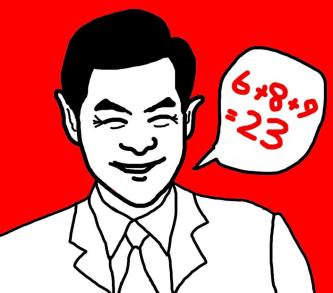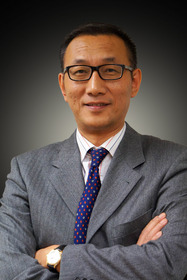| Can Hong Kong citizens trust him? |
CY Leung apologises for illegal structures
Wealthy property surveyor Leung Chun-ying is due to take office, mired in controversy, as Hong Kong’s next chief executive on July 1.The Chinese-language Ming Pao Daily reported last week that Leung’s residence on Victoria Peak, the lofty enclave for the rich, powerful and famous, featured an illegal glass canopy extension. That caused Buildings Department inspectors to check more closely, tallying five more instances of illegal structures on the property.
Extensions to property in Hong Kong are a big deal, partly because rapacious landlords erect them on the top of their buildings for extra revenue. They are often illegal, unsafe, unsanitary and occasionally downright dangerous.
The campaign of Henry Tang Ying-yen, Leung’s main rival for the chief executive job, collapsed when it was discovered he had a 2,400 square foot illegal basement under his Kowloon Tong house. Tang first denied it, then blamed his wife for building it. CY Leung had publicly declared during the campaigning that he had no illegal structures at his home.
Conducting a media pack through his HK$500 million residence, Leung explained that he bought the twin property 10 years ago and had an ‘authorized person’ inspect it for compliance with buildings regulations. He promised to rectify the infringements immediately.
Albert Ho Chun-yan, Democratic Party chairman and the third man on the CE ballot in March, was incensed and will seek a judicial review or court petition to nullify the results of the small-circle CE election. “We are taking this matter to court because Hong Kong people need a credible chief executive” declared Albert who participated in the election to challenge the legitimacy of the electoral college.
The media circus has hired cranes stationed outside CY Leung’s residence just as they did outside Henry Tang’s Kowloon Tong quarters in February. There is live TV coverage and commentary.
Leung talks the talk
“There is only one law for all in Hong Kong, rich or poor,” Leung stated on ‘Newsline,’ the ATV interview program hosted by Michael Chugani last Sunday. He made the comment in the context that the same rule should apply to himself and to the New Territories villagers who claim they should be exempt.
Leung has the ability to say the right things even when caught with his pants down. In politics that is a rare gift. Comparisons with the ‘Teflon president’ Bill Clinton, who could look people in the eye and lie with a straight face, are not amiss.
Allegations of being a closet communist, of urging riot police action on the 2003 public rally against a draconian security bill, of taking instructions from the ‘united front’ plotters at the China Liaison Office and now of violating the buildings code, all seem to slide off without sticking.
Leung rarely gets flustered in public. He takes it all in stride like a hardened politician. He will not be scuppered. He puts on the long-suffering look of the misunderstood. Colleagues who have worked for decades with him have difficulty penetrating his inscrutable personality. Nobody really ‘knows’ him. The old establishment of senior civil servants, property tycoons and university academics have major reservations.
Public trust is surprisingly absent for a man who diligently tours depressed neighborhoods, avoids hobnobbing with the tycoons and projects himself a champion of the poor. There is something about CY Leung which invokes deep-seated mistrust.
Leung has apologised three times within the past five days at the various forums and meetings his team has organised. His latest apology was “I am disappointed in myself over this incident. I have let down my friends and the public. I am sorry”.
Tardiness after Henry Tang fiasco?
What rankles about Leung’s illegal extension discovery is that Henry Tang was felled by extensive media disclosure of similar unauthorized structures over which Henry remained silent as his government declared it would demolish all such extensions.
Tang was then second in command in the Donald Tsang administration. Henry typically stuck his wife with it. She is now the subject of Buildings Department and legal investigations.
Leung had plenty of warning and ample time to rectify his illegal structures away from public glare. Why did it need a report by Ming Pao Daily, the same paper which broke the Henry Tang story, for him to act? Was it gross negligence, poor judgment or arrogance?
As a property surveyor himself, CY Leung has even less excuse for being unaware of what contravenes building regulations. Questions are being asked about the professional advice he received. Some point to that as disturbing evidence of his inability to find competent advisors.
His choice of outsiders inexperienced in administration or policy-making, to head up several bureaus in the incoming government has raised eyebrows among independent and pro-Beijing legislators.
Democrats bay for resignation
Several pro-Beijing compatriots voiced their disappointment and displeasure at this unwelcome tarnishing of the incoming chief executive’s reputation. After the humiliation of Beijing’s first choice for chief executive, the compatriots were relieved to have Leung slide into position by default. He was embraced as one of them who made good on his own.
Tsang Yok-sing, president of the Legislative Council, characterized the illegal structures as “serious negligence” on a radio talk program but did not think it was a deliberate cover-up.
Chan Yuen-han, head of the Federation of Trade Unions (FTU), demanded a full explanation. The FTU had cast its vote for Leung in the ‘small-circle’ election for the chief executive.
Regina Ip Lau Suk-yee, an unsuccessful contender for the CE nomination, declared “integrity matters for those running for public office, therefore the illegal structure row is a serious problem”.
The democrats predictably held a protest march calling for Leung’s resignation saying he is “morally bankrupt”.
Fast-track ploy defeated in Legco
The attempt to fast-track the incoming administration’s restructuring bill ahead of the 10 pending bills and 17 resolutions was defeated in Legco by one vote. Of the 54 legislators in the chamber, 27 voted for, 25 against. The motion needed 28 votes to be carried. The government was too casual in assuming it easily held the majority in Legco. Chief secretary Stephen Lam’s jaw dropped when the vote-count was announced.
The president abstained from voting to maintain his impartiality. Regina Ip abstained ‘on principle’. Two pro-government legislators were absent.
That unexpected setback means the full complement of three top officials, two deputy secretaries and 14 bureaus in Leung’s administrative revamp (which will cost the government HK$60 million more per annum), will not be in place July 1 when it takes office.
What is particularly embarrassing about this is that President Hu Jintau will be in Hong Kong on that date to commemorate 15 years of the resumption of Chinese sovereignty. It is an altogether inauspicious start for the new chief executive.
Security bill rears its ugly head
It is widely suspected that Beijing’s support for CY Leung in the CE election, after Henry Tang self-destructed, included an obligation to pass the reviled Article 23 security legislation during the next five-year term. CY Leung has denied that Article 23 is a priority for his administration.
 |
| CY's 689 votes at the CE election adds to Article 23? |
In 2017 the chief executive is to be universally elected. Given Hong Kong’s instinctive suspicion of the real intent of Article 23, it is unlikely that any popularly elected leader can endorse it. If the security bill is not enacted during the next term, it will be near impossible to embed it in the statutes thereafter.
Many independent and pan-democratic legislators fear that Leung’s strongman leadership style, evidenced by his aggressive push for quick approval of his massive reorganization of the government machinery, will similarly railroad the Article 23 bill when he feels it opportune to do so.
After 180,000 Hong Kong residents turned up for the June 4 vigil in Victoria Park for the 1989 student massacre in Tiananmen and a mass march June 10 over the suspicious suicide of Tiananmen dissident Li Wangyang at a hospital in Hunan, the public mood is outrage at the Communist Party’s callous disregard for human rights.
Ambrose Lee Sin-kwong, the outgoing secretary for security, last week made the loony claim that Hong Kong people “owe the central government a constitutional responsibility” to enact the national security legislation.
That sounded like Hong Kong should show its gratitude to Beijing for the right to exist, by passing a bad law designed not to defend national security but to allow government to curtail treasured rights of free expression, assembly and press, allow home raids without warrant and imprison journalists for disclosure of undefined ‘state secrets’.
The Singapore Straits Times’ China correspondent Ching Cheong was jailed for three years in 2005 for disclosing ‘state secrets’ and spying for Taiwan. None of the allegations were proven. He was also the subject of a false smear campaign by the authorities for allegedly keeping a mistress. Ching Cheong was a vice editorial manager on the communist paper Wen Wei Pao in Hong Kong. He resigned in protest with 40 others after the 1989 Tiananmen massacre.
China already has responsibility for external defense and international relations under the Basic Law. Article 23 is not a vital defense against attack by foreign forces. It is to shackle internal challenges to the creeping pro-mainland takeover of Hong Kong’s legislature, governance, academic institutions, police and justice systems.
James To Kun-sun, chairman of the Legco security panel and a democratic lawmaker, said Article 23 should not be voted on until Hong Kong moved to universal suffrage. When all legislators are elected by the people, they are unlikely to pass bad laws which undermine fundamental freedoms and human rights.
The worry now is whether Hong Kong’s new chief executive will connive with Beijing to remove the territory’s last remaining freedoms and rule of law. Can Hong Kong people trust Leung Chun-ying?
ENDS




